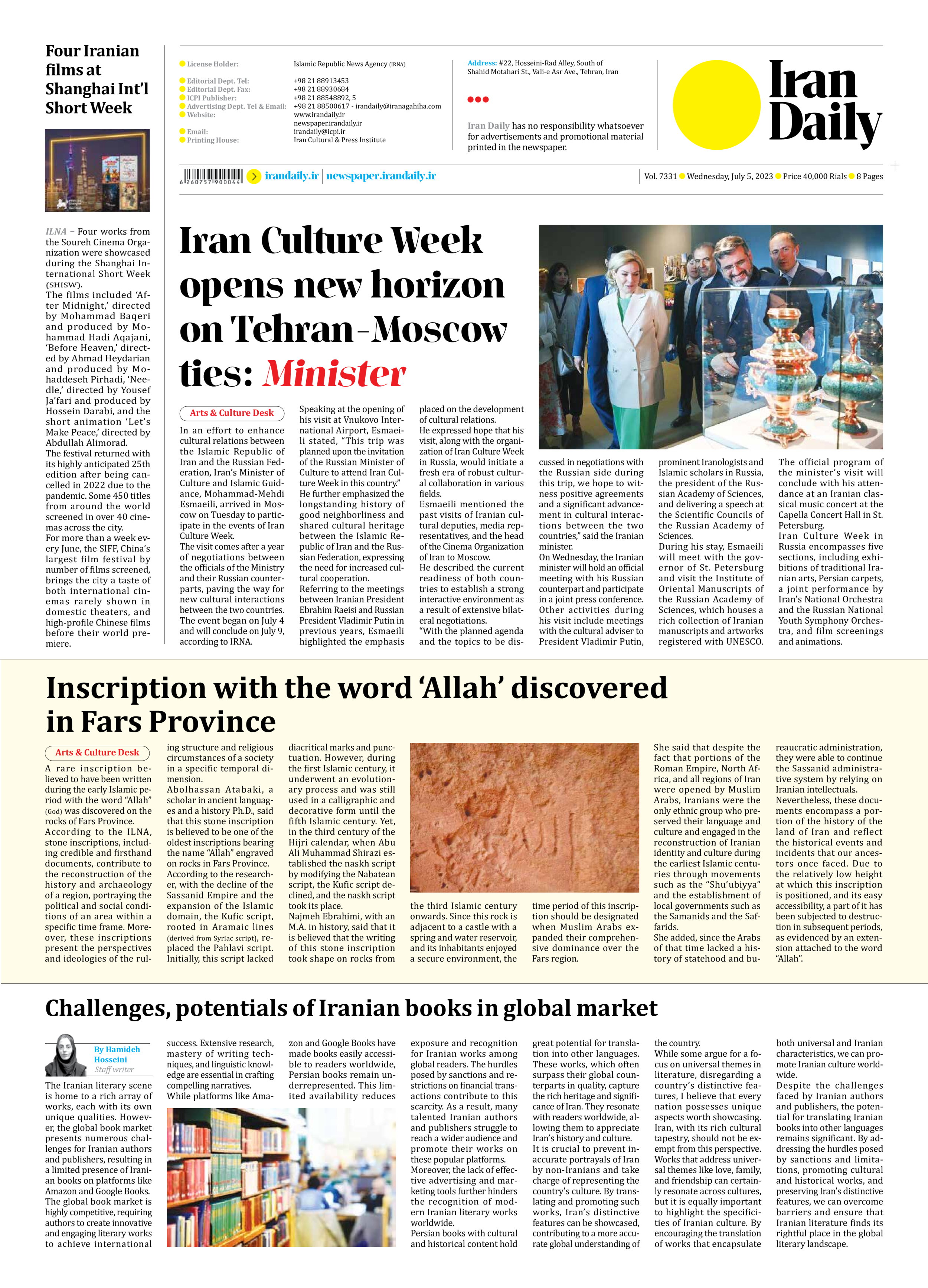
Challenges, potentials of Iranian books in global market
By Hamideh Hosseini
Staff writer
The Iranian literary scene is home to a rich array of works, each with its own unique qualities. However, the global book market presents numerous challenges for Iranian authors and publishers, resulting in a limited presence of Iranian books on platforms like Amazon and Google Books.
The global book market is highly competitive, requiring authors to create innovative and engaging literary works to achieve international success. Extensive research, mastery of writing techniques, and linguistic knowledge are essential in crafting compelling narratives.
While platforms like Amazon and Google Books have made books easily accessible to readers worldwide, Persian books remain underrepresented. This limited availability reduces exposure and recognition for Iranian works among global readers. The hurdles posed by sanctions and restrictions on financial transactions contribute to this scarcity. As a result, many talented Iranian authors and publishers struggle to reach a wider audience and promote their works on these popular platforms.
Moreover, the lack of effective advertising and marketing tools further hinders the recognition of modern Iranian literary works worldwide.
Persian books with cultural and historical content hold great potential for translation into other languages. These works, which often surpass their global counterparts in quality, capture the rich heritage and significance of Iran. They resonate with readers worldwide, allowing them to appreciate Iran’s history and culture.
It is crucial to prevent inaccurate portrayals of Iran by non-Iranians and take charge of representing the country’s culture. By translating and promoting such works, Iran’s distinctive features can be showcased, contributing to a more accurate global understanding of the country.
While some argue for a focus on universal themes in literature, disregarding a country’s distinctive features, I believe that every nation possesses unique aspects worth showcasing. Iran, with its rich cultural tapestry, should not be exempt from this perspective. Works that address universal themes like love, family, and friendship can certainly resonate across cultures, but it is equally important to highlight the specificities of Iranian culture. By encouraging the translation of works that encapsulate both universal and Iranian characteristics, we can promote Iranian culture worldwide.
Despite the challenges faced by Iranian authors and publishers, the potential for translating Iranian books into other languages remains significant. By addressing the hurdles posed by sanctions and limitations, promoting cultural and historical works, and preserving Iran’s distinctive features, we can overcome barriers and ensure that Iranian literature finds its rightful place in the global literary landscape.







